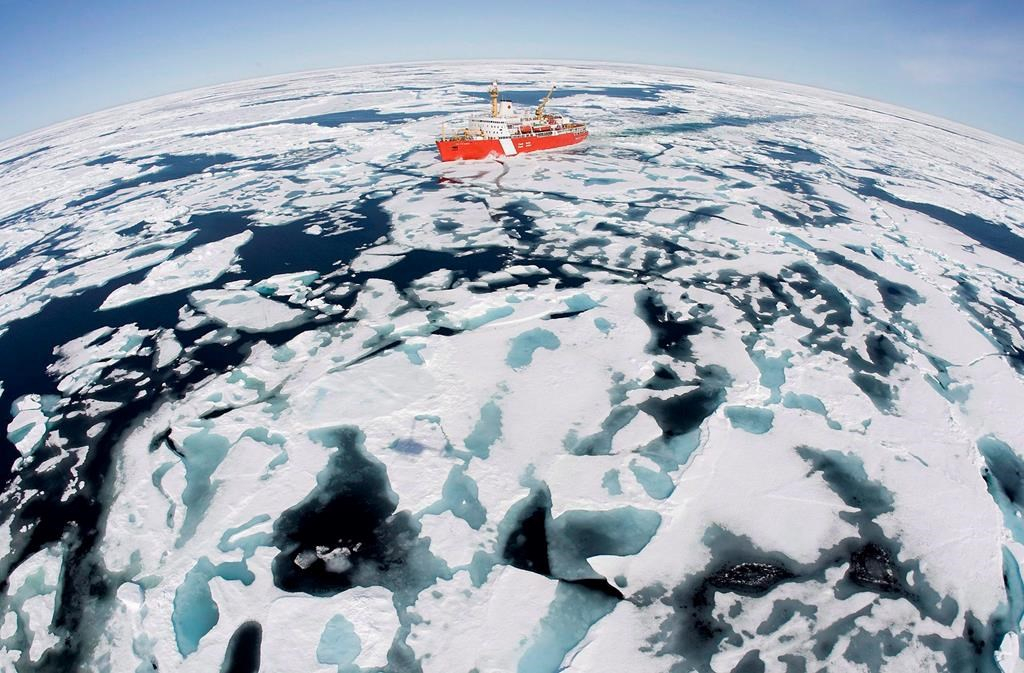Support strong Canadian climate journalism for 2025
There is a new lead in the case of the missing icebreaker, though exactly how the story will end remains to be seen.
The fate of the Canadian Coast Guard’s next heavy icebreaker has been wrapped in mystery since the federal Liberal government quietly removed the project from Vancouver shipyard Seaspan’s order book in May.
The ship was first promised by Stephen Harper’s Conservative government more than a decade ago and its disappearance from the to-do list prompted questions and speculation within official Ottawa, including whether the vessel was being cancelled.
On Friday, the Liberal government pulled back the curtain by asking Canadian shipyards to essentially make their cases for building the vessel, which the Harper government dubbed the CCGS John G. Diefenbaker.
The Diefenbaker, whose $1.3-billion budget is under review, was supposed to replace the CCGS Louis S. St-Laurent in 2017. The St-Laurent has been in operation since 1969, though the Coast Guard insists it is in good shape.
Shipyards will have two weeks to respond with information on their "capability and capacity" to construct and deliver the icebreaker, according to Public Services and Procurement Canada.
"Our government continues to deliver on its commitment to equip the Coast Guard with the ships that it needs," Public Procurement Minister Anita Anand said in a statement.
"Given the importance of icebreaking services and the complexity of this build, we are exploring all options to ensure that the ship is delivered as expeditiously as possible."
The opportunity to build the Diefenbaker is expected to set off a new round of furious lobbying by Canada's three major shipyards: Seaspan, Halifax-based Irving Shipbuilding and Quebec City's Chantier Davie.
The three are bitter rivals and have not spared any expense fighting each other for work over the past decade.
"We are pleased to see Canada exploring a domestically built polar icebreaker," Seaspan vice-president Amy MacLeod said in an email.
"Seaspan Shipyards was purpose-built to deliver the entire non-combat (shipbuilding) program, including polar. We have the infrastructure, highly skilled team and supply chain in place today to deliver a world-class polar icebreaker on the government's timeline."
Seaspan was tapped in 2011 to build the Diefenbaker as part of a larger order that also included four science vessels for the coast guard and two navy supply ships, but it was removed from the Vancouver shipyard’s order book and replaced with 16 smaller multipurpose vessels in May.
Davie is expected to figure as Seaspan's main rival.
The federal government announced in December that Davie was the only shipyard to qualify for addition into Canada’s multibillion-dollar shipbuilding strategy, through which Ottawa is already building new naval warships, Arctic patrol vessels and coast guard science ships.
While that sets the company up to win potentially billions of dollars of federal work building six medium icebreakers, it has been lobbying hard for the heavier Diefenbaker as well.
This report by The Canadian Press was first published Feb. 28, 2020.





Comments
Davie pulled a trick with the Navy's supply ship: it bought a recently built ship and transformed it into an adequate re-supply military ship in a short time and within budget. Perhaps it plans to do the same with the icebreaker?